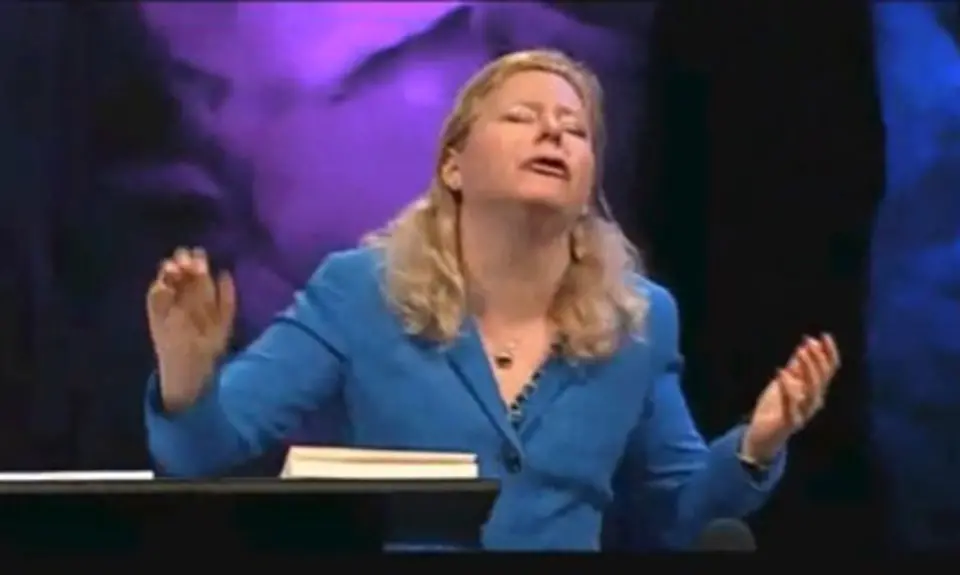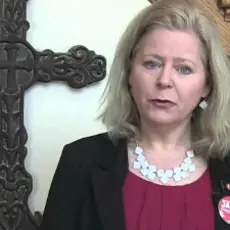In 2010, radical religious-right activist and conspiracy theorist Janet Porter lost her radio program when her network became concerned about her ties to the Dominionist movement. Porter, a longtime anti-choice activist, eventually resurfaced in Ohio, where she spent the last decade organizing a series of stunts and rallies aimed at pressuring the state legislature to pass “Heartbeat Bill” legislation she had drafted, which would outlaw abortion from the moment a fetal heartbeat can be detected.
Porter openly admitted that her legislation was intended to outlaw abortion “before the mother even knows she’s pregnant" and, she hoped, be the “the foot in the door" that would eventually "outlaw all abortions" by leading to the overturning of Roe v. Wade. Ohio eventually passed her legislation in 2019.
When the Supreme Court did overturn Roe v. Wade in 2022, it was not because of Porter's "Heartbeat" legislation, but the decision did set in motion a chain of events that, ironically, may end up destroying all of Porter's efforts to outlaw abortion in Ohio.
In the aftermath of the Supreme Court's decision, many states moved to severely restrict or completely outlaw access to abortion, while other states took steps to protect access to reproductive healthcare. In Ohio, reproductive rights advocates placed the issue before the voters by putting Issue 1, which sought to amend the state constitution to protect abortion rights, on the November ballot.
Predictably, Porter was among the anti-choice activists who worked feverishly to promote a ballot initiative that would have made it harder for voters to amend the constitution, and then, when that failed, to convince voters not to pass Issue 1.
Prior to the election, Porter explicitly warned that passage of Issue 1 would undo her life's work:
“In 1989, I worked to pass the Woman’s Right To Know law. That’s informed consent; it had a 24 hour waiting period,” Porter said. “Then we passed a fetal homicide law. We passed parental consent. We passed the heartbeat law. [We passed] the nation’s first ban on partial-birth abortion.”
“If we don’t protect those laws with this vote by raising the bar, that means come November—if they spend enough blood money, they confuse enough voters—they can undo and wipe out every pro-life law that we have ever passed,” Porter warned. “Everything that I’ve ever done in my life in this state, it will be gone like that.”
“This is what we’re talking about,” she declared. “Protecting every law we’ve passed.”
On Tuesday, voters overwhelmingly chose to enshrine reproductive rights in the Ohio constitution, prompting Porter to release a poorly edited but highly defiant video declaring that the election "is not the final word on this."
Citing statements issued by several anti-choice state legislators, Porter declared that the language of Issue 1 is "too vague" and therefore does not change any of the state's laws pertaining to the issue of abortion.
"There is more than one way to win this," Porter said. "We are working on multiple fronts, and this is not the final word."
"Billionaires from out of the country and millionaires from out of the state, they don't get to make the laws in Ohio," Porter proclaimed. "The Ohio legislature is standing united to make sure of that."
To recap: Prior to the election, Porter frantically warned that passage of Issue 1 would "wipe out every pro-life law that we ever passed." But once Issue 1 actually passed, Porter conveniently began immediately insisting that Issue 1 has no authority to do anything at all.





